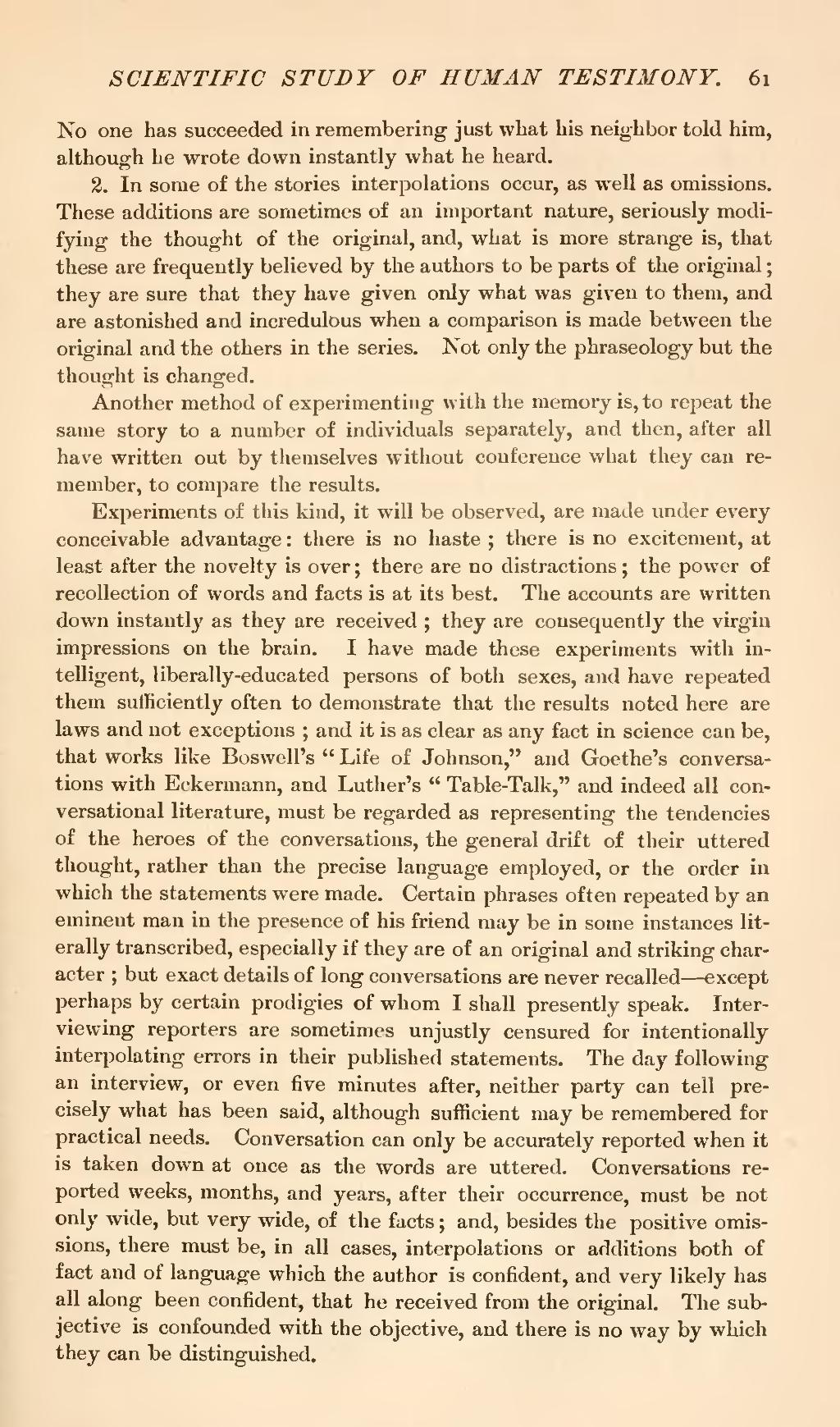No one has succeeded in remembering just what his neighbor told him, although he wrote down instantly what he heard.
2. In some of the stories interpolations occur, as well as omissions. These additions are sometimes of an important nature, seriously modifying the thought of the original, and, what is more strange is, that these are frequently believed by the authors to be parts of the original; they are sure that they have given only what was given to them, and are astonished and incredulous when a comparison is made between the original and the others in the series. Not only the phraseology but the thought is changed.
Another method of experimenting with the memory is, to repeat the same story to a number of individuals separately, and then, after all have written out by themselves without conference what they can remember, to compare the results.
Experiments of this kind, it will be observed, are made under every conceivable advantage: there is no haste; there is no excitement, at least after the novelty is over; there are no distractions; the power of recollection of words and facts is at its best. The accounts are written down instantly as they are received; they are consequently the virgin impressions on the brain. I have made these experiments with intelligent, liberally-educated persons of both sexes, and have repeated them sufficiently often to demonstrate that the results noted here are laws and not exceptions; and it is as clear as any fact in science can be, that works like Boswell’s "Life of Johnson," and Goethe's conversations with Eckermann, and Luther's "Table-Talk," and indeed all conversational literature, must be regarded as representing the tendencies of the heroes of the conversations, the general drift of their uttered thought, rather than the precise language employed, or the order in which the statements were made. Certain phrases often repeated by an eminent man in the presence of his friend may be in some instances literally transcribed, especially if they are of an original and striking character; but exact details of long conversations are never recalled—except perhaps by certain prodigies of whom I shall presently speak. Interviewing reporters are sometimes unjustly censured for intentionally interpolating errors in their published statements. The day following an interview, or even five minutes after, neither party can tell precisely what has been said, although sufficient may be remembered for practical needs. Conversation can only be accurately reported when it is taken down at once as the words are uttered. Conversations reported weeks, months, and years, after their occurrence, must be not only wide, but very wide, of the facts; and, besides the positive omissions, there must be, in all cases, interpolations or additions both of fact and of language which the author is confident, and very likely has all along been confident, that he received from the original. The subjective is confounded with the objective, and there is no way by which they can be distinguished.

